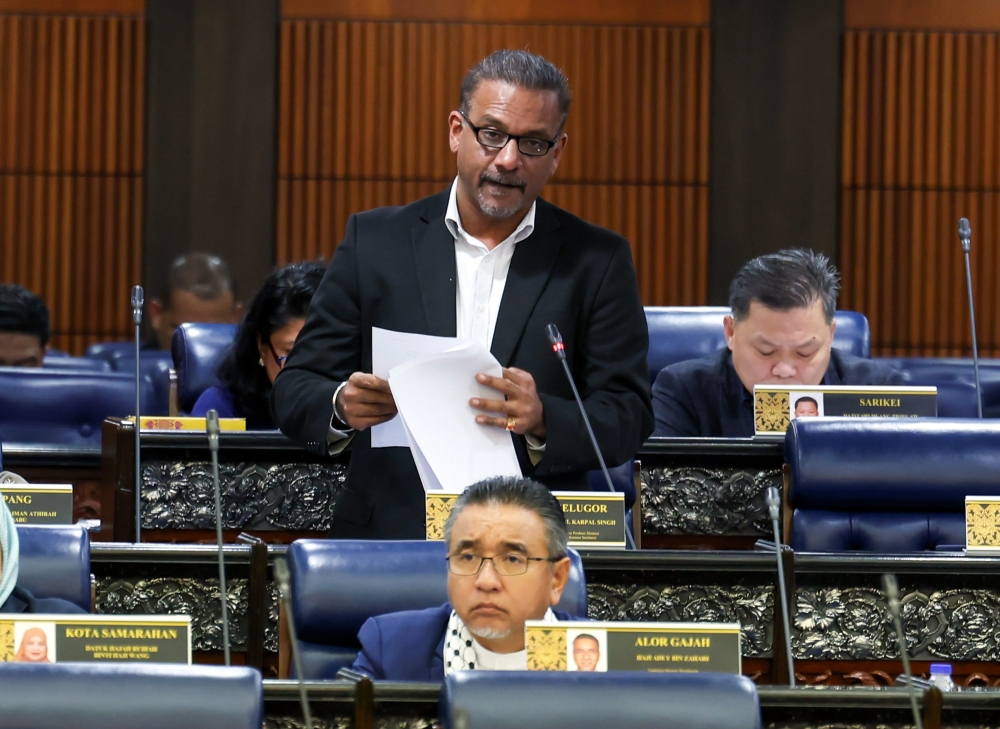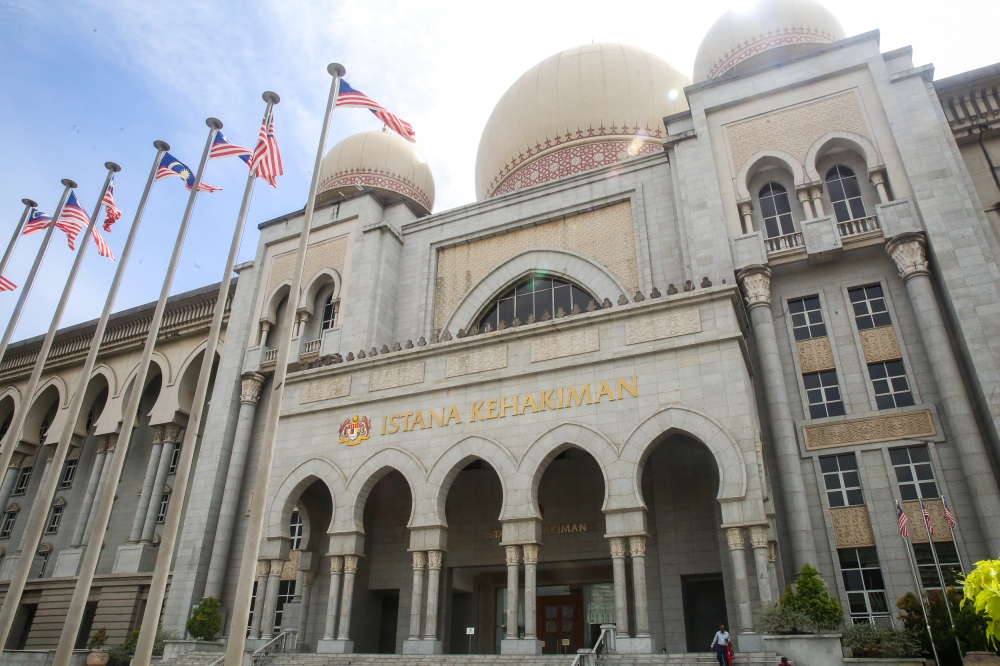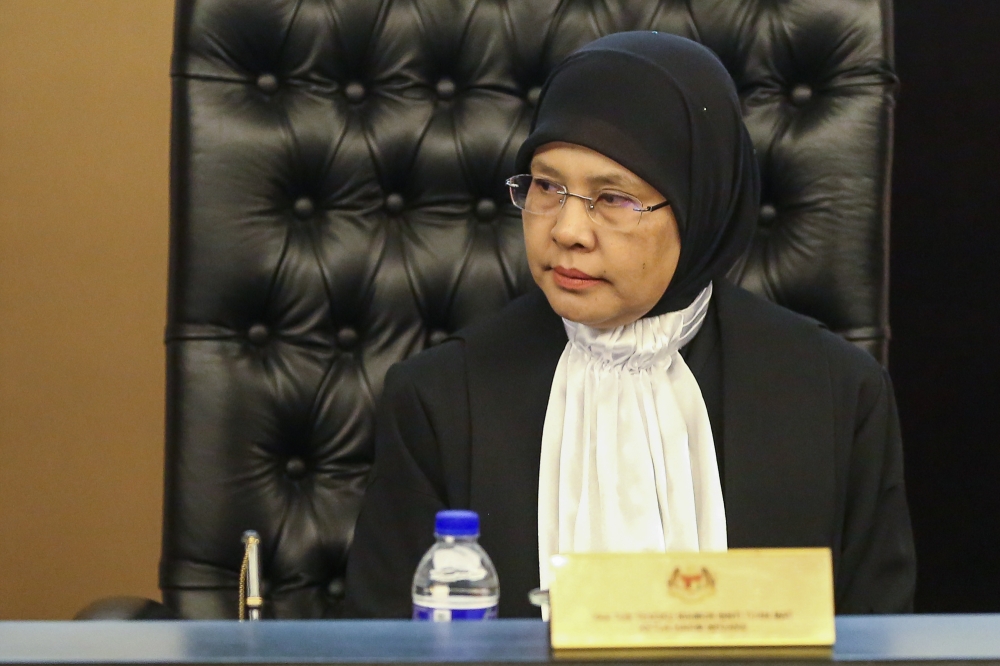KUALA LUMPUR, Dec 29 — Malaysia repealed, amended, enacted and gave new interpretations to eight legal provisions this year that helped strengthen protection for women and children as well as advance the nation towards gender equality and more humane treatment of those convicted of certain crimes in the belief that people deserve second chances in life.
As the year comes to a close, Malay Mail takes a look at six key legislations made in 2023 as part of the Anwar government’s promise on institutional reforms and two laws that were struck out as unconstitutional by the Federal Court.
1. The anti-stalking law or Section 507A of the Penal Code
Four years after the Women’s Aid Organisation (WAO) called for an anti-stalking law, it finally came into force on May 31 this year after Parliament amended the Penal Code to introduce an extra provision — Section 507A.
On March 29 this year, then deputy law and institutional reform minister Ramkarpal Singh cited a study by WAO and market research firm Vase.ai titled “Understanding Malaysians’ Experiences of Stalking” that found 36 per cent of Malaysians have experienced being stalked, and the fear that comes with it.
The law intends to tackle gender-based crimes in which women are frequently victims.
The law can be applied after there is more than one incident of following or tracking physically or online, communicating or attempting to communicate, loitering around the place of business or home of a person, giving or sending anything through any medium to a person.
However, it must be coupled with the intention of causing or knowing to cause distress, fear, or alarm to the person’s safety.
According to the deputy minister, the law encompasses the use of technology in stalking such as using hidden cameras and remote navigation of the victim.
Those convicted under Section 507A can be sentenced to jail for a maximum of three years, a fine, or both.

The first person to be charged under this law was a 37-year-old graphic designer Mohamad Safiq Rosli on August 10 who was accused in the Magistrate’s Court of harassing 31-year-old photographer Acacia Mardiana Daud online through three messages on X — formerly Twitter — in which he expressed his love for her.
The accused initially pled not guilty and was ordered to undergo a psychiatric evaluation at Hospital Bahagia in Tanjung Rambutan, Perak.
After being certified fit to plead and fit for trial by a doctor, the accused finally pleaded guilty on December 15 this year in the Shah Alam Magistrates’ court.
However, on December 20 this year, the court rejected his guilty plea. The magistrate noted that the medical report from the psychiatric evaluation she had previously ordered Mohamad Safiq to undergo when he was first charged in August, said the accused may have been of unsound mind when the act was committed.
The trial is set to be on January 17, 2024, and Mohamad Safiq will rely on the defence of insanity under Section 84 of the Penal Code.
Section 84 of the Penal Code states that it is not a crime if the person who committed the act, at the time of committing the act, was incapable of knowing the nature of the act, or that he is doing what is either wrong or contrary to law due to unsoundness of mind.
His victim told The Star in an interview published on the same day as his charging, that she had been stalked by the man since 2016, and that the latter had even stalked her all the way to the UK when she was studying there after failing to find her at her home in Malaysia.
Mohamad Safiq was reported to have been apprehended by British police in London, but jumped bail and fled back to Malaysia before he could be charged there.
Little is known about what happened since as there have been no news reports into the case after his charging.
As of December 15, police have investigated nine cases under the new anti-stalking law, with two resolved and the remaining seven pending, Bukit Aman’s Sexual, Women, and Child Investigations Division principal assistant director Assistant Commissioner Siti Kamsiah Hassan told The Star.

2. Abolishing the mandatory death sentence
Sentencing someone to death to pay for crimes committed has long been a subject of controversy, more so in the 21st century.
While Malaysia still allows the death sentence despite overt calls by human rights organisations like Amnesty International to end such practices, the legislature this year moved to allow judges the discretion to decide whether to punish a serious crime offender with death or commute to a lesser penalty, like life in prison.
A total of 12 crimes which carried the mandatory death penalty were repealed on June 16, with 10 from the Penal Code and one provision each in the Firearms (Increased Penalties) Act 1971 and the Kidnapping Act 1961.
The repeal of the mandatory death sentence was for two reasons as given by then deputy law and institutional reform minister Ramkarpal Singh on April 3 in Parliament: death is irreversible; and no evidence points that sentencing someone will deter others from committing such crimes.
The Abolition of Mandatory Death Act 2023 also provided for the varying of sentences relating to imprisonment for natural life whipping and additionally provided for related matters under the Penal Code; the Firearms (Increased Penalties) Act 1971; the Arms Act 1960; the Kidnapping Act 1961; the Dangerous Drugs Act 1952; the Strategic Trade Act 2010; and the Criminal Procedure Code.

3. Alternatives to the death sentence
With the end of the mandatory death sentence, Parliament had to also provide for alternative sentences for the death row convicts, and needed to define them as there are repercussions to a lifetime jail sentence.
This it did with the Revision of the Sentence of Death and Imprisonment for Natural Life (Temporary Jurisdiction of The Federal Court) Act 2023 on June 16.
That means that those who would otherwise be hanged would now spend the remainder of natural life.
Those imprisoned for natural life would spend their entire life in prison and will only be able to leave on the day they die as laid out in Section 130A(f) of the Penal Code.
Although there was a 90-day time period to apply, 1,020 applications were made by persons who were sentenced to death or imprisonment for natural life.
Death sentence revision applicants were given a court-appointed lawyer and natural life imprisonment sentence applicants could choose their lawyer in which 83 cases are handled by Yayasan Bantuan Guaman Kebangsaan.
However, not all applicants have been successful in their appeal.
On August 2, a businessman failed in his appeal to commute his death sentence for trafficking in 9.528kg of cannabis.

4. Protecting children from sexual predators, especially those who lurk online
Parliament noted the dangers of the internet and criminalised sexual extortion of a child and having any involvement or participation in child sexual performances.
As it came into force on June 21, the expansion of the scope of sexual assault against children aimed to cover the loopholes in our digital age with the amendment to Sexual Offences Against Children Act 2017.
The amendments moved to protect children on the internet by including videos, photos, live streams, and audio for sexual performances and sexual extortion under Section 15A and Section 15B of the Act respectively.
This came after the publication of the Disrupting Harm report by a global child rights advocacy network known as ECPAT International, Interpol and Unicef that disclosed that an estimated 100,000 children in Malaysia face sexual abuse online in a year.
The Act also substituted the term “child pornography” to “child sexual abuse material” because children cannot consent to sexual acts, following a suggestion by the United Nation’s Office of the High Commissioner for Human Rights under Guidelines Regarding the Implementation of the Optional Protocol to the Convention on the Rights of the Child on the Sale of Children, Child Prostitution and Child Pornography.

5. Decriminalising attempted suicide
Attempting suicide used to carry a punishment of imprisonment up to one year or with a fine or both.
So Parliament abolished Section 309 of the Penal Code, which previously criminalised attempted suicide, and it was gazetted on August 11, making it no longer a crime.
In 2021, there were 1,142 deaths reported to be a result of suicide, a stark increase from the year 2020 which recorded 631 deaths.
The Covid-19 pandemic drastically deteriorated the mental health of many, and social activists fought for suicide to be decriminalised.
On August 5, 2020, Malaysians started an online petition calling for Parliament and the then attorney general Tan Sri Idris Harun to decriminalise suicide that gained a total of 46,705 signatories.
Only after three years, the decriminalisation of suicide was gazetted.

6. Protecting mental health
With more people facing stress in their daily lives, the government gazetted the amendment of Section 11 of the Mental Health Act 2001 on the same day as it decriminalised suicide.
The new Section 11 now includes protection for those who attempted suicide and provides that crisis intervention officers such as the police and firemen can forcibly enter the premises to apprehend and take the “mentally disordered” person to a medical officer in a government psychiatric hospital or a registered medical practitioner in a gazetted private psychiatric hospital for examination.

7. Pensions
On June 27, the nation’s highest court upheld an earlier Court of Appeal ruling against a revision to the Pensions Adjustment Act 1980 and deemed the 2013 amendment to be unconstitutional.
The landmark ruling was made after 57 former civil servants challenged Section 3(2) of the Pensions Adjustment Act 1980 which provided for a 2 per cent of pension increment annually for government retirees.
The 2013 amendment was deemed unconstitutional as Article 147 of the Federal Constitution protects pensioners from any subsequent “less favourable” pension laws.
That meant that the Federal Court reinstated the old rate that would see government retirees enjoy the same increase when current civil servants of the same grade get a pay bump.
But it appears that the pensioners have yet been able to celebrate their win.
On October 6, four months after the landmark Federal Court ruling, the pensioners sent out its first legal letter to demand the government for adjusted pension payments.
The Public Service Department (PSD) replied in an October 17 letter that the government had taken the necessary action in line with the Federal Court’s judgment to restore the pre-2013 amendment pension scheme.
PSD claimed that the restoration of the old pension scheme meant that starting from July 2023, civil servants who had retired before 2013 should receive pension amounts as of the December 2012 rate which took into account the government’s last salary revision in 2012.
It added that those who retired from 2013 onwards should only receive a pension based on the original amount when they retired as there was allegedly no salary revision for civil servants after 2012.
According to the PSD, the last increment for civil servants’ wages was in 2012 at between 9 and 13 per cent.
The pensioners then wrote another letter on December 1 to the PSD demanding the government make the necessary adjustments to any shortfall due in their pensions.
As it stands on December 14, Prime Minister Datuk Seri Anwar Ibrahim said the government will top up the pension amount for retired civil servants to ensure that it is not less than what is currently received.

8. Sexist law that criminalised men enticing married women
The Federal Court made another landmark ruling on December 15 when a five-judge panel chaired by Chief Justice Tengku Maimun Tuan Mat struck out Section 498 of the Penal Code and ruled that the act of enticing married women was unconstitutional as it violated the principles of equality enshrined in the Federal Constitution.
The archaic law, made before Merdeka and kept on for decades, would have seen convicted offenders punished with jail time for two years, a fine, or both.
In her written judgment, Tengku Maimun pointed out that Section 498 “only entitles husbands” to rely on the provision, and that this is against Article 8(2) of the Federal Constitution that expressly states there shall be no discrimination in law on the basis of gender.
A complaint under Section 498 can only be made by the husband of the woman allegedly enticed, based on guidelines laid down in Section 132 of the Criminal Procedure Code.
Additionally, the inability of wives to rely on it also invoked a violation of Article 8(2) of the Federal Constitution.
Thanks to that new ruling, Section 498 is deemed not to be applicable from now on.






















